-May Ng-
On January 13th, 2012,
Burma did an unthinkable act of releasing a cadre of political opponents from
its malevolent, neocolonial prison system. If this is a true and sincere gesture,
it indeed may mark the end of a half century long military rule that began in
1962, when the public broadcasting station was stormed, peaceful student
protestors were shot and the student union building was demolished. The
courage, to take such a gamble after decades of entrenched military rule, is
commendable.
Prolonged conflicts and poverty in
Burma have not only devastated the people; the ensuing Saffron Revolution of
2007, has also left the once highly regarded Burma’s military in the rubble of
history. Real soldiers can now see that ruling Burma by arms is not only wrong
but it is also not feasible. In addition, the economic sanctions led by the
United States may have been the last straw that forced the hands of the junta.
Or it may simply be that, the military has run its course and the Generals now
only want a guarantee to preserve their wealth and prestige they believed they
have earned for their families. No one knows for sure what takes place behind
the walls of opaque military junta. But it is more important not to be blind to
what can be seen in front of everyone.
The problem with the semi
authoritarian congress of Naypidaw, at the moment, is its nugatory moral
authority and questionable political credibility to overcome the doubts and
challenges of the political and armed oppositions in Burma. But the biggest
mistake for the oppositions is to abandon the process entirely to the whimsical
military without a clear alternative strategy. Which is probably why Aung San
Suu Kyi decides to participate in the April 1st by election, but
only she can tell for certain.
It is still too soon to know if
Burma can be held up as the example of an authoritarian’s graceful exit, yet,
even by the President of the United States. But it can safely be assumed that
the Burmese generals are trying to avoid Libya’s fate while their oppositions
are trying to avoid another ’88 style violence like Syria. And the 2007 Saffron
Revolution demonstrated that, misery of Burma can no longer continue to
stagnate in the pond of prolonged and uneasy peace.
After World War II, as nationalism
and anti-colonialism peaked, Asia plunged into the cold war. And according to
Christopher Bayly and Tim Harper, 2007, Britain had helped to arm Burma in 1940
and 1950 when the government in Rangoon seemed about to fall. In the coming of
age of the new leviathan; the USSR and China became the new reason for which
the British and American tacitly supported the emerging state of martial rule
in Pakistan, Burma, Indonesia, and the softer authoritarianism of Malaysia and
Singapore.
Ultimately, the military in Burma
came to dominate the villages and control the ministries and the police force.
According to “Forgotten Wars”, Burma’s army appropriated more and more of the
country’s diminished wealth; and benefited from the perception that it was a
threatened country in the midst of an armed camp, with Chinese, the rump of the
British Empire or even India greedily surveying the remains of its assets of
oil, timber and rice.
Finally in the last decades, Burma
had all but become one of the first failed states. The British and Americans
never sought to bolster General Ne Win’s rise to power but, as in the case of
Ayub Khan of Pakistan, Western politicians were relieved enough when
noncommunist strongmen came to control poor and conflict-ridden countries, said
Bayly and Harper. They wrote in conclusion that , ‘Thus it had ever been since
the days of Thucydides the Athenian, that democracies at home consorted with
dictator and became tyrannies abroad, though still cloaking their interests in
the rhetoric of spreading democracy’.
But the greatest tragedy has been
when the Americans and other Western democracy more or less continued the same
policy even after the bloody 1988 uprising in Burma, and engaged in business as
usual with the SLORC/SPDC military junta, except for halfhearted and
ineffectual economic sanctions. But in the aftermath of 2007 Saffron
Revolution, Americans and other western democrats who were the arbiters of new
powers in the post-cold war, became the more visible supporters for the Burmese
democracy movement.
The perception of ‘civil and
political rights’, for Americans and other free societies, may be no more than
a tool, or political currency to pressure unsavory regimes around the world.
But for every Burmese including the soldiers, it is a question of life and
death at this juncture in Naypyidaw’s politics. Akhil Reed Amar, 1998, points
out that the necessary preconditions for democratic self-government by the
people of a free state is, “a broad understanding of arms”. There can be no
democracy unless there is a precondition for democratic self-government, to
control the armed forces.
The unparalleled success of the
American Democracy rested on one single most important lesson they learned from
the Glorious Revolution of 1688; of placing the standing army under the control
of the civilian parliamentary government. It was without a doubt from the
beginning that, Americans could not have dreamed of unalienable Rights to Life,
Liberty and the pursuit of Happiness if they have surrendered the civilian
control of the peacetime army. Which unfortunately, was what took place in
Burma since the 1948 Independence; - granting a handful of armed men in
uniforms the power to kill and to reap the riches of Burma.
Until this can be altered, like the
America’s supreme Law, ‘the Constitution’; which, according to Akhil Reed Amar,
is “superior to all other legal texts precisely because it was to be ordained,
and could later be altered, by the supreme lawgiver—the people;” until the
people are given the power - to protect their families, their lives and their
possessions from the violence of armed forces, the ship for democracy has not
yet sailed for Burma.
January 13th may still be
the finest moment in the darkest chapter of Burma. The courage to let it happen
and the courage to reconcile - has been breathtaking. But no one should turn
their back on the task at hand, No one knows yet whether the freedom’s gate is
near. For, the fate of Burma has always been in the hands of the Burmese
people; the soldiers, the students and the ethnic nationality leaders. To
change Burma, Aung San Suu Kyi said that, the people themselves will have to
take the initiatives. And may be this time they might, even after the April
fool’s day.





















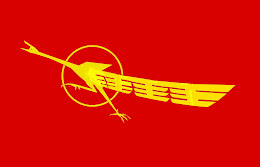





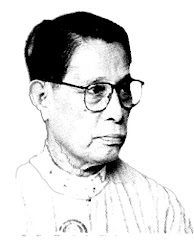



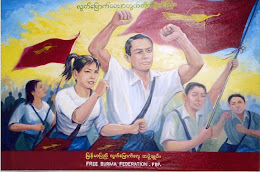





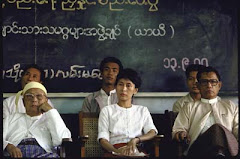

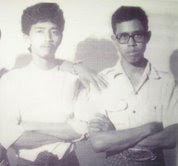

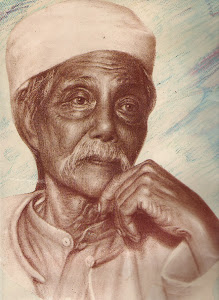
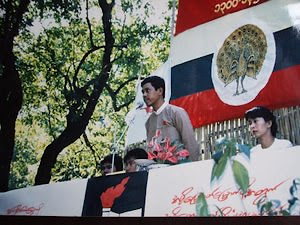
1 comment :
ကၽြန္ေတာ္တို႕ ၀ါးခယ္မၿမိဳ႕မွာ မိတာခေတြကို
လုပ္ငန္းသံုးရယ္၊အိမ္သံုးရယ္ဆိုၿပီး တစ္ယူနစ္ လွ်င္(၃၅)က်ပ္(၇၅)က်ပ္ဆိုၿပီးေကာက္ခံထားပါတယ္......တစ္လလွ်င္(ေလးေသာင္းေက်ာ္ငါး ေသာင္းေပေဆာင္ေနရပါတယ္)သို႔ေပမဲ့အလုပ္က ေန႔ခင္းပိုင္းဘဲလုပ္လို႔ရပါတယ္..ည(၆)နာရီကေန(၉)နာရီအထိအလုပ္လုပ္လို႔မရပါဘူး။မီးအားအ၀င္က(၃၀)ေလာက္ဘဲရွိပါတယ္။မီးအားနည္းလို႔ EPCကိုဖုန္းဆက္ေျပာေတာ့သူတို႔လဲမတက္
ႏိုင္ဘူးလို႔ရံုး၀န္ထမ္းေတြကေျပာပါတယ္။
ဘယ္၀န္ထမ္းမွလည္းလာမလုပ္ေပးပါဘူး။
အထက္ကအဲ့ဒီေလာက္ဘဲခ်ေပးတယ္ေျပာပါတယ္။အ့ဲဒီေတာ့ကၽြန္ေတာ္တို႔အလုပ္လုပ္ခ်င္
ရင္ တျခားႏိုင္ငံေျပာင္းၿပီးလုပ္ကိုင္ရမလိုျဖ
စ္ေနပါၿပီ။
Post a Comment